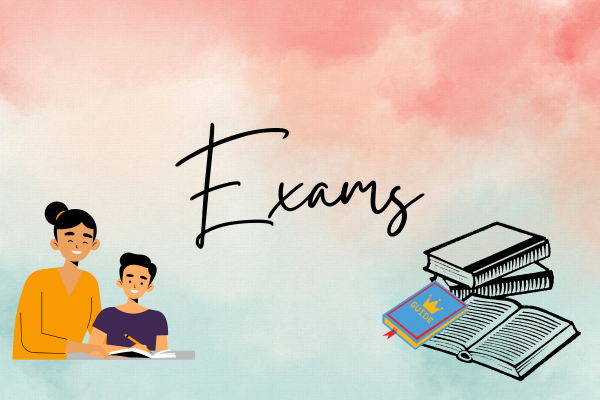Introduction
To clear any exam there is a need for proper guidance and hardwork. Embarking on the journey of competitive exams is a crucial step towards realizing your career aspirations. In this blog post, we will explore the best direction to study for competitive exams, because for achieving any goal there is a need for proper direction. Without proper training it’s very difficult to achieve any goal. So, there is a need for proper direction to study for competitive exams.

Understanding Your Goal
First thing is that you have to clear your mind about your goal. Before diving into the sea of study materials, it’s essential to have a clear understanding of your career goals. Define your objectives and identify the competitive exams aligned with those aspirations. Knowing your destination is the first step in determining the best direction for your study efforts.
Researching Exam Patterns
To achieve your goal, knowledge of exam patterns is very necessary, because if you are nor clear about the exam pattern you did not prepare well for this exam. Making a roadmap for your study journey. Delve into the intricacies of the exams you are preparing for. Understand the question formats, marking schemes, and time constraints. This information will guide your study strategy and ensure you are well-prepared for the challenges ahead. All these are some of the best directions to study for competitive exams.
Choosing the Right Study Material
The choice of study material can make or break your preparation. Explore a variety of resources, including official exam guides, recommended textbooks, and online platforms. Tailor your selection to match your learning style and the specific requirements of the competitive exam you’re tackling. All these things are necessary to prepare well for your exam.
Utilizing Technology for Learning
In the digital age, technology is a powerful tool to reach knowledge. Discover how online platforms, educational apps, and e-learning resources can enhance your study experience. Leverage technology to access interactive content, practice tests, and collaborative study groups, making your preparation more dynamic and engaging. Nowadays many online courses are available to give the best direction to study for a competitive exam. Select the best option according to your needs.
Conclusion for Best Direction to Study for Competitive Exams
As we conclude this exploration of the “Best Direction to Study for Competitive Exams,” it becomes evident that success is not just about covering syllabi but about navigating the intricacies of preparation with precision.
Understanding your goals becomes the compass guiding your efforts. Whether it’s government job exams, entrance exams for higher education, or professional certifications, a clear destination ensures that each step is purposeful. Researching exam patterns acts as a map, unveiling the terrain of questions and challenges you’ll encounter, allowing you to plan and strategize effectively.
Choosing the right study material is your toolkit, each book and resource a valuable instrument in your arsenal. In this digital age, technology becomes your companion, providing interactive aids and connectivity with fellow aspirants. Balancing self-study and coaching is like adjusting the sails – finding the right mix that propels you forward.
- You might be interested in reading this post as well.
FAQs for Best Direction to Study for Competitive Exams
Question 1: How do I stay motivated throughout the preparation journey?
Answer: Maintaining motivation is a common challenge. Set realistic goals, celebrate small victories, and visualize the long-term benefits of your hard work. Surround yourself with a supportive environment to keep the momentum going.
Question 2: Is it essential to follow a strict study schedule?
Answer: While a flexible approach is beneficial, having a structured study schedule fosters consistency. Tailor your timetable to your peak productivity hours and include breaks to avoid burnout.
Question3: Can technology replace traditional study methods?
Answer: Technology is a supplement, not a replacement. Combine the strengths of both traditional and technological methods for a well-rounded study approach. Use technology for efficiency but don’t underestimate the value of books and handwritten notes.